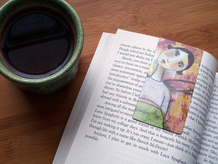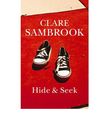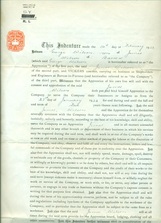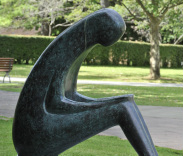
1. Send them on a journey.
This can be a journey through geographical space, such as Grace's trip across the Atlantic, or a metaphorical journey back to the past, as Satish faces with the Jubilee party reunion. Or it can be both, as for Futh, with a walking tour that recreates an earlier holiday with his father. Not only is your character stepping out into unfamiliar territory without their familiar props, but there's so much potential for things to go wrong. While most luxury ocean liners don't have to be abandoned, lots of us have had the experience of getting lost and arriving at our destination much later than we'd hoped, or being mentally dragged back to a place in our lives we'd rather leave behind.
2. Foist other people on them.
We all know that every protagonist needs an antagonist, someone to thwart their story goals. But they don't need to be much of a villain to make life difficult, they can just be other people being themselves. When Satish's childhood friend pushes him to attend the Jubilee reunion, she can't possibly understand the trauma she's rekindling. Okay, the proprietor of the guesthouse where Futh begins and ends his circular walk isn't a bundle of laughs, but he isn't to know that Futh doesn't understand how other people's minds work and has no idea of the suspicion his behaviour, in all innocence, is arousing. Grace, on the other hand, perhaps stemming from a lifetime of economic dependence in the days before women had the vote, never in my opinion completely loses control, despite relying for her very survival first on her new husband, then on the shifting power dynamics within the lifeboat, and finally on the opinion of the jury about the part she played in the murder of Mr Hardie. The much quoted truism that we can't live with other people and can't live without them either applies as much to novels as to real life.
3. Get down to basics.
You know about Maslow's hierarchy, and our basic human need to address our fundamental physiological concerns before we can move on to higher-order issues. I've already mentioned how getting enough, or the right, food had me worried across all three novels, especially The Lifeboat where Grace was at genuine risk of starvation. This was also one of those rare novels where the characters get to go to the toilet – or not, as it happens, given that lifeboats aren't provided with such luxuries, so the poor women had to fiddle about with a bailer under their ankle-length skirts.
Not exactly life-threatening, but I do know from experience it's extremely painful, so I did sympathise with Futh and his blisters, while cursing him for buying new walking boots before setting out on a long-distance walk, and I'm not sure that I could have done that to him.
Still, the Beatles got it wrong about Jude: it's not the author's job to make it better, we've got to take a sad situation and make it worse. Or at least until the very end of the story.
Please share your views on this or any other aspects of the author interviews. The next one, with Gavin Weston, author of Harmattan, should be launched fairly soon, with a post about the end of childhood following on not long after.
As for my own writing, June is shaping up to be my personal short story month, with several publications promised: one I've been waiting for for about a year (the contract's signed but I'm not holding my breath) while another two were only accepted this week. I'll keep you informed.


































 RSS Feed
RSS Feed





















